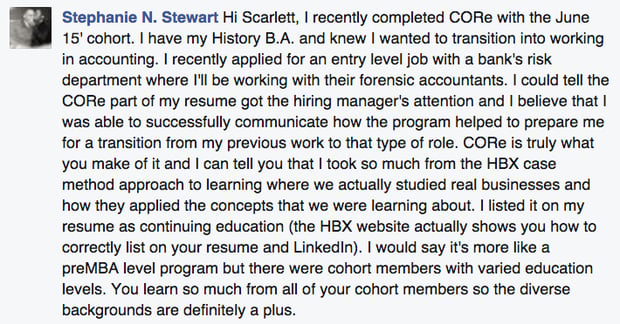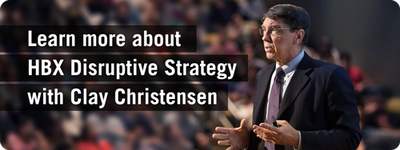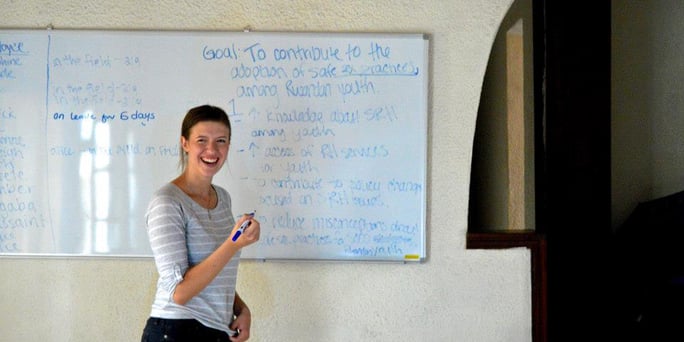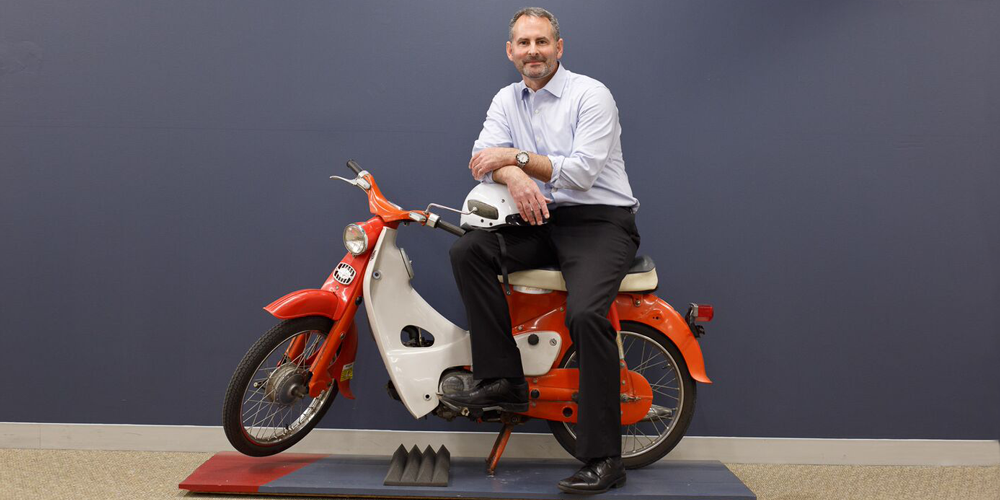
This post is an excerpt from an article originally posted by The Harbus. To see the full interview, click here.
Greg Laudick (HBS MBA 2016) sat down with Boeing Chairman Jim McNerney for an in-depth conversation about building a successful career from MBA grad to CEO. The conversation has been lightly edited for clarity and brevity.
Greg Laudick: What do you wish you knew when you were 30 that you now know today?
Jim McNerney: When I was 30, I thought it was more a matter of design on how you motivate people and how you pay them, but people want more than that. People want career growth. They want to be part of an ethical organization. They want to be part of an organization that’s doing important things. I’ve learned that is as important a part of the Boeing story when I’m talking to people who are going to join or are part of the organization. It’s more holistic.
Forty years ago it was sort of a transaction between an individual and a company. Today, it’s more of a merger. So, it’s a more holistic discussion and a more holistic set of things that motivate people, and so I pay more attention to those things. Are we an ethical company? Do we care about the environment as well as do great things and important things? Do we care about people where they live and how they live? It’s a different environment today that I probably didn’t appreciate as much at 30. A sign of the times when I was 30 but also a sign of youth.
Greg Laudick: Throughout your career, you've likely seen many people's careers go off track. If you were speaking to a newly graduated Harvard MBA, what would you advise them to look out for and how would you advise that they try to avoid those derailers?
Jim McNerney: Staying in one function or one location, while 30 percent of the time is good because that’s what people want, 70 percent of the time is not good. Diversity of experience is helpful. Insularity is always a problem, whether you’re in a job for too long or you’re in a function for too long. It hurts your ability to interact with the outside world.
I think there are other human traits, like self-righteousness. You can’t always be right and be part of an organization. You have to make other people right as many times as you’re right.
Greg Laudick: How do you look at balancing being in one function and development expertise there versus getting a breadth of experience?
Jim McNerney: It depends on the potential of the person. For a person who can eventually be a significant leader in your organization, the test is not have you mastered something. The test is have you shown the ability to do it. Are you on a trajectory that you will master it quickly but then enable you to move and then move again? And then you want to make sure they have the diversity of experience that will allow them to stitch it all together when they’re in jobs that ask them to integrate all of it. The value of them being to integrate it exceeds the value of mastering any one of them now.
Greg Laudick: In the 787 program, you inherited a lot of challenges and really turned it around. What are maybe some of the big challenges that you've faced in your career. What have you learned and how did you overcome them?
Jim McNerney: In the case of the 787 we overestimated our ability to manage risk on the technical side and on the supply chain side. Fortunately, we built the right airplane. We had the right competitive thought and we had the right product thought, but we let that dominate the discussion, and we had some immature technologies, and we overestimated the capabilities of some of our supply chain. It’s one thing to see something on paper. It’s another thing to understand the risk associated with it, and, therefore, the variability of outcomes. It’s very hard, but we were not as good as we should have been at assessing risk. But we did a great job of assessing opportunity.
I would say many times that is the general management challenge: understanding underlying risk. That gets down to not only understanding the people and the technology but also to asking questions that probe at the distribution of outcomes, not just the mean. That was not done rigorously enough in the case of the 787.
Greg Laudick: I can imagine as CEO, everyone's trying to meet your expectations. How do you, in addition to asking the probing questions, really get to the truth?
Jim McNerney: I think it’s the culture you can set in place as CEO. If you have a culture where everybody knows there’s only one answer when you walk into a room, you’re going to get that answer. I’ve always thought that when you’re creating something new, whether it’s a new product or a new idea, there always needs to be two processes. There needs to be a process where concepts are developed and a second process where concepts are committed to. The commitment is when you’re building plants, you’re assigning engineers, you’re spending the $100 million a month to get it going. That’s commitment. In that world, you don’t want a lot of discussion.
In the development world, you want nothing but discussion. Only one out of 10 ideas are good. You’ve got to be willing to tolerate the messy iterative discussion where people can put up their hands and feel free to say, “Hey, you guys are crazy.”
It’s when you start with the answer, which is the second process, and then demand it from the people who are in charge of creating it in the right way that you get the wrong answer.
Greg Laudick: What would you say you learned about yourself, your leadership style and your capability to lead through these challenging situations?
Jim McNerney: I think with more experience, you become a little more tolerant in one way and a little less tolerant in another: a little less tolerant in having high expectations of the people that work for you, but a little more tolerant of letting them find their own way to get there. I think good leaders have very high expectations for people but also figure out a way to give them the tools and inspire them to reach for those expectations. You don’t find that in very many people together.
You find inspirational leaders who don’t have the same set of goal orientation, and then you have unreasonable goal setters who just won’t spend any time with you. They’re not willing to walk the talk themselves. So it’s about being more tolerant of the many different ways to roam and investing in people to get there but remaining very high in your expectations of people. A good leader has both of those. It is the hardest thing to find in one person. I think over time I’ve just become more convinced that the blended leadership capability is critical.
Greg Laudick: Do you have any advice for MBAs entering the workforce on finding mentors?
Jim McNerney: Mentors don’t just happen. You create them. I think my message to the readers would be you create mentors with your curiosity, and you don’t create a mentor by just walking up cold and saying, “Will you be my mentor?” You create mentors by being open, curious, asking questions, performing well. Do that and people will want to help you.




































 Going out for drinks or dinner is fine as long as it's in a place that isn't too loud, but it can be awkward if you're not a natural conversationalist. Some students also use meetups as a study group or a way to further discuss course concepts!
Going out for drinks or dinner is fine as long as it's in a place that isn't too loud, but it can be awkward if you're not a natural conversationalist. Some students also use meetups as a study group or a way to further discuss course concepts!





